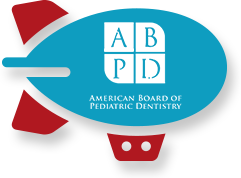4 Quick Tooth Tips for New Parents
January 11th, 2018
Being a new parent is a HUGE challenge filled with thousands of questions and a lot of research. We’re here to help new parents get their children a healthy smile with some of our favorite tooth tips for new teeth!
Begin an Oral Health Care Routine

Question: do you have to clean baby’s mouth if it has no teeth? Answer: YES! A baby’s first tooth doesn’t typically erupt until they are 8 months old, but it’s still important to keep their mouth clean. You can clean their gums by taking a damp cloth or gauze and gently rubbing it over their gums to remove any food debris. You may choose to use a very soft, baby toothbrush and lightly brush their gums using a very low amount of pressure to avoid upsetting their sensitive gums. However, a damp cloth works just as well.
Establish a Dental Home
The American Academy of Pediatric Dentistry advises parents to establish a dental home for their children before their first birthday. Usually, a child’s first tooth will appear between 6 and 10 months of age, which makes it the perfect time to choose a comfortable dental home for your child.
By choosing a pediatric dental home for your child, you get them the best oral care specifically designed for young teeth. A pediatric dentist will be able to diagnose any issues in your child’s smile, and provide you with the knowledge needed to help them achieve oral health success.
Incorporate Mouth Healthy Foods
Around ages 4- 6 months, most children are ready to begin eating some solid foods. You can take this opportunity to introduce them to some mouth-healthy foods that their body and developing smile will appreciate. Soft foods like bananas, cooked sweet potatoes and avocado are fantastic healthy foods for children beginning a solid diet. Sweet potatoes are high in Vitamin-A, and support healthy teeth and gums, and avocados contain high amounts of Vitamin C, which contains folate – a mineral that combats gum disease.
Be Flexible
Your child’s mouth is going to evolve, and their oral health routine will need to adapt to fit their smile. As they age, be sure to replace their toothbrush when the bristles begin to plume and fray, and pick one with soft bristles that they can easily grab. Also, be sure to visit the pediatric dentist twice per year so that you can stay up-to-date on any changes in their smile that need to be treated.
Visit Our Office Regularly
Providing the best dental care for your child is our top priority, and we would love to speak with you about your child and their dental needs. Establishing a dental home early is very important, so we suggest that you bring your toddler in right after their first tooth emerges. That way, we can craft a dental plan that will help them earn a healthy smile that lasts for life. We see children of all ages, so call us and schedule an office tour! We want to make visiting the dentist fun, and easy for your child. Call us today to schedule an appointment, or a relaxing meet-and-greet.






